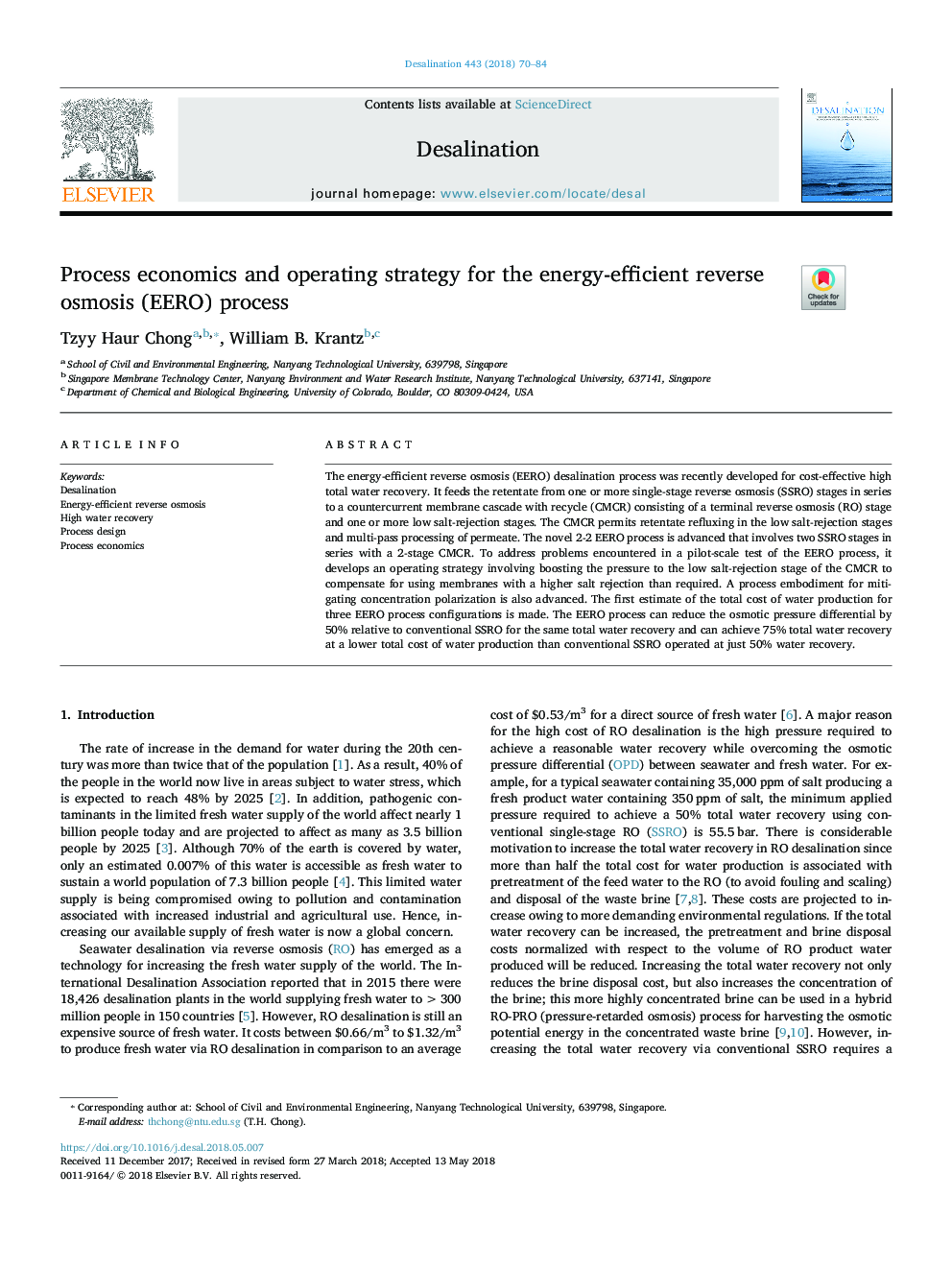| Article ID | Journal | Published Year | Pages | File Type |
|---|---|---|---|---|
| 7007673 | Desalination | 2018 | 15 Pages |
Abstract
The energy-efficient reverse osmosis (EERO) desalination process was recently developed for cost-effective high total water recovery. It feeds the retentate from one or more single-stage reverse osmosis (SSRO) stages in series to a countercurrent membrane cascade with recycle (CMCR) consisting of a terminal reverse osmosis (RO) stage and one or more low salt-rejection stages. The CMCR permits retentate refluxing in the low salt-rejection stages and multi-pass processing of permeate. The novel 2-2 EERO process is advanced that involves two SSRO stages in series with a 2-stage CMCR. To address problems encountered in a pilot-scale test of the EERO process, it develops an operating strategy involving boosting the pressure to the low salt-rejection stage of the CMCR to compensate for using membranes with a higher salt rejection than required. A process embodiment for mitigating concentration polarization is also advanced. The first estimate of the total cost of water production for three EERO process configurations is made. The EERO process can reduce the osmotic pressure differential by 50% relative to conventional SSRO for the same total water recovery and can achieve 75% total water recovery at a lower total cost of water production than conventional SSRO operated at just 50% water recovery.
Related Topics
Physical Sciences and Engineering
Chemical Engineering
Filtration and Separation
Authors
Tzyy Haur Chong, William B. Krantz,
